Partisans: 1904-13
By:
September 9, 2009
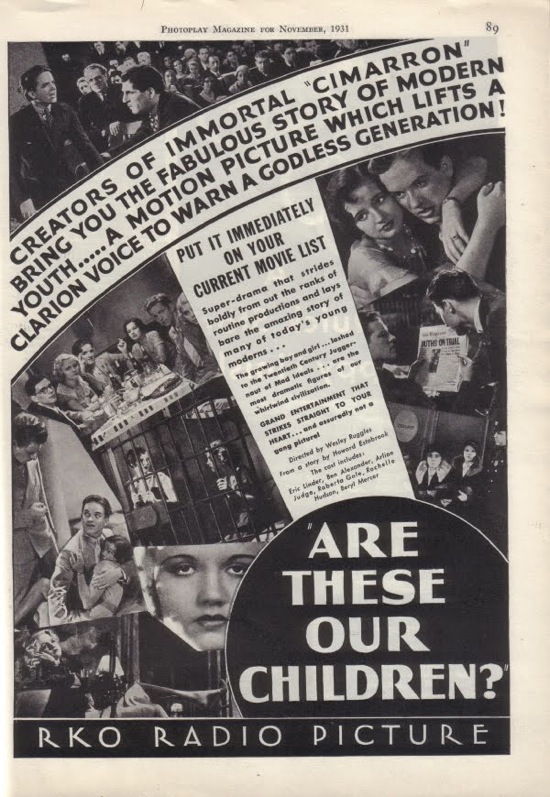
William Strauss and Neil Howe claim that a “GI Generation” (renamed the “Greatest Generation,” in recent years) was born from 1901-24; however, the GI/Greatest Generation is a particularly wrong-headed and ill-made example of periodization. It’s so awkward and unconvincing, in fact, that there must be a strategic rationale behind it — naturally, I believe it has something to do with middlebrow.
As I’ve previously suggested, Strauss & Howe lopped off the last three years of the Hardboiled Generation (1894-1903) and crammed them into the so-called GI Generation because Walt Disney, the man who single-handedly reinvented Low Middlebrow and made it a popular success at midcentury, was born in 1901. Why? Strauss & Howe — not to mention the myriad of pseudo-journalists and marketing consultants who’ve adopted their periodization for nearly 20 years now — are agents of Middlebrow. As such, they instinctively fear and despise the deeply ambivalent (utopian yet fatalistic) Modernists (1884-93) and Hardboileds (1894-1903), on the one hand, and the deeply ambivalent (fatalistic yet utopian) Postmodernists (1924-33) and Anti-Anti-Utopians (1934-43), on the other. The former two cohorts they lump together and dismissively name a “Lost” generation, the latter two they lump together and name a “Silent” one. Thus does Middlebrow ever depict its rivals and foes: as confused, woolly-headed, irrational, immature, and inarticulate.
The so-called Greatest/GI Generation comprises two distinct generational cohorts: one born from 1904-13, and another from 1914-23. The latter cohort I’ll discuss in a subsequent installment. Some of the most impressive writers and thinkers who belong to the former cohort were involved with the journal Partisan Review. In 1934, the journal was founded in New York by William Phillips (1907) and Philip Rahv (1908); then, in ’38, it was relaunched by Phillips, Rahv, Dwight Macdonald (1906), F.W. Dupee (1904), and George L.K. Morris (1905). It was the most influential literary-political journal of both the prewar anti-Stalinist Left (a.k.a. the high-, low-, anti-low, and hilobrow New York Intellectuals), and then the WWII/Cold War era’s chastened leftists, born-again liberals, anti-utopians, aesthetes, and pioneering neoconservatives: i.e., middle-, no-, and anti-highbrows.
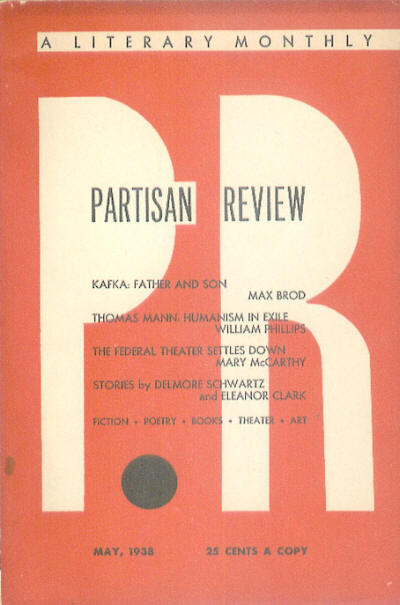
The transformation of Partisan Review — and the decamping of Macdonald from the journal, after which he was branded, by his ex-colleagues, as confused, woolly-headed, irrational, immature, and inarticulate — can be regarded as a microcosm of Middlebrow’s triumph in the West. Hence this generation’s moniker: the Partisans.

High-, low-, no-, and hilobrow members of the Partisan Generation include: Albert Camus, Claude Lévi-Strauss, Clement Greenberg (whose 1939 Partisan Review essay, “Avant-Garde and Kitsch,” and 1953 Commentary essay, “The Plight of Our Culture,” are important anti-middlebrow treatises), Cornell Woolrich, Dwight Macdonald (whose 1960 Partisan Review essay, “Masscult and Midcult,” and various New Yorker essays from 1952-62, among others, are important anti-middlebrow treatises), Emmanuel Levinas, Ernie Bushmiller, Fats Waller, Flann O’Brien, George Orwell (whose 1936 essay “Bookshop Memories” and 1945 essay “Good Bad Books,” among others, are anti-middlebrow), Hannah Arendt (who conflated totalitarianism and the homogenizing effects of mass media when warning about threats to a public sphere of liberal discourse and critical judgment), Hergé, Michelangelo Antonioni, Isaiah Berlin (who complains of middlebrows in a 1936 letter), Jackson Pollock (whose abstract expressionism the arch-middlebrow Norman Rockwell parodied savagely), Jacques Tati, Jacques-Yves Cousteau, Jean-Paul Sartre, Julio Cortazar, Lawrence Durrell, Marguerite Duras, Marshall McLuhan (a critic of middlebrow magazines like Time and Life), Mary McCarthy (who, like her friends Macdonald, Arendt, and Greenberg, was savagely anti-middlebrow; and she was married to a key anti-middlebrow critic of an older generation, Edmund Wilson), Maurice Blanchot, Mervyn Peake, Northrop Frye, Paul Bowles, Paul Goodman, Paul Ricoeur, Phil Silvers, Rachel Carson, Robert E. Howard, Robert Johnson, Roberto Rossellini, Samuel Beckett, Simone de Beauvoir, Simone Weil, T.W. Adorno (as noted, a key anti-middlebrow critic), Walt Kelly, Willem de Kooning, and Woody Guthrie.
A reminder of my 250-year generational periodization scheme:
1755-64: [Republican Generation] Perfectibilists
1765-74: [Republican, Compromise Generations] Original Romantics
1775-84: [Compromise Generation] Ironic Idealists
1785-94: [Compromise, Transcendental Generations] Original Prometheans
1795-1804: [Transcendental Generation] Monomaniacs
1805-14: [Transcendental Generation] Autotelics
1815-24: [Transcendental, Gilded Generations] Retrogressivists
1825-33: [Gilded Generation] Post-Romantics
1834-43: [Gilded Generation] Original Decadents
1844-53: [Progressive Generation] New Prometheans
1854-63: [Progressive, Missionary Generations] Plutonians
1864-73: [Missionary Generation] Anarcho-Symbolists
1874-83: [Missionary Generation] Psychonauts
1884-93: [Lost Generation] Modernists
1894-1903: [Lost, Greatest/GI Generations] Hardboileds
1904-13: [Greatest/GI Generation] Partisans
1914-23: [Greatest/GI Generation] New Gods
1924-33: [Silent Generation] Postmodernists
1934-43: [Silent Generation] Anti-Anti-Utopians
1944-53: [Boomers] Blank Generation
1954-63: [Boomers] OGXers
1964-73: [Generation X, Thirteenth Generation] Reconstructionists
1974-82: [Generations X, Y] Revivalists
1983-92: [Millennial Generation] Social Darwikians
1993-2002: [Millennials, Generation Z] TBA
LEARN MORE about this periodization scheme | READ ALL generational articles on HiLobrow.

The Partisans were in their teens and 20s in the Twenties (1924-33; not to be confused with the ’20s), and in their 20s and 30s in the Thirties (1934-43). Older Partisans came of age during a period of economic prosperity, rapid urbanization, and technological miracles like television, talking pictures, nonstop transatlantic flights, new land-speed records, frozen food, color cartoons, and long-playing records.
Younger Partisans came of age as the US stock market collapsed, and the Great Depression began. It was an Age of Ideology. Communists forecast the Death of Capitalism, while Roosevelt’s New Deal used government spending — on programs including the Federal Emergency Relief Administration, the Civil Works Administration, the Public Works Administration, the Works Progress Administration, and the Civilian Conservation Corps — to restore faith in American democracy at a time when many people believed that the only choice left was between communism and fascism.
Partisans enlisted to fight on the side of the socialists, communists, liberals, and anarchists in the Spanish Civil War. As continental Europe succumbed to authoritarian and totalitarian regimes, European artists and intellectuals fled to America. As the Thirties ended in 1943, the US geared up to enter WWII. So much for their formative years. The Partisans’ greatest influence was still to come — during the Cold War.
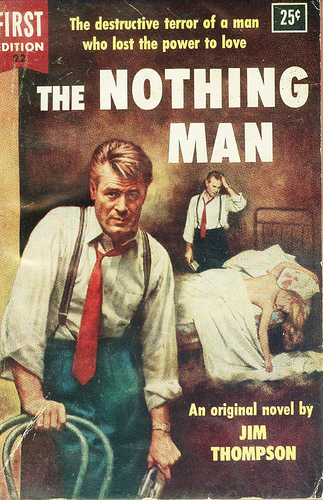
In addition to anti-Stalinist leftism, high-, low-, no-, and hilobrow Partisans were entirely responsible for EXISTENTIALISM (the postwar existentialist philosophers and psychologists — Camus, Sartre, Beauvoir, Merleau-Ponty, Viktor Frankl, Rollo May — as well as supposedly existentialist writers and filmmakers like Genet, Beckett, Ionesco, Cioran, Antonioni, Kurosawa, Adamov, were all born from 1904-13); NOIR FICTION (except for David Goodis, the important noir authors — Jim Thompson, Dorothy B. Hughes, Charles Williams — were born from 1904-13; honorary Partisan Cornell Woolrich was born in ’03); and ABSTRACT EXPRESSIONISM (Arshile Gorky, Philip Guston, Franz Kline, Willem de Kooning, Lee Krasner, Barnett Newman, Jackson Pollock, David Smith, and Clyfford Still were born from 1904-13; honorary Partisan Mark Rothko was born in ’03).
After reading the above paragraph, who can still argue that the tightly knit 1904-13 cohort ought to be lumped into some amorphous, sprawling pseudo-generation like the GI/Greatests? I ask you.
Interesting to think of the Existentialists as the immediate juniors of the Hardboileds. As noted, the Hardboileds accepted the truth of the Modernists’ claim that unfreedom had been relocated inside our own heads; this, in fact, is what it means to be a modern. The Hardboileds were fatalistic, pessimistic, and bitterly resigned to unfreedom. The Existentialists accept unfreedom, but put an optimistic spin on it: we can be free within unfreedom, they claim. Sartre insisted that we must accept responsibility for our “thrownness” into a situation that we didn’t choose; we’re free if we choose our unfreedom. Camus, who self-consciously aped the style of hardboiled crime novelists, asked us to imagine that Sisyphus, perhaps the least free figure in western mythology, and the one most aware of the absurdity (unmeaningfulness) of life, was happy. No wonder Middlebrow is so comfortable with the so-called GI/Greatest Generation.
Note that I distinguished between hardboiled literature and noir in an earlier post. I wrote: Noir fiction, in which the protagonist is usually not a detective, but instead a victim, a suspect, or a perpetrator, and in which sex plays a prominent role, was pioneered by Cornell Woolrich. The titles of Woolrich’s novels — e.g., The Bride Wore Black (1940), The Black Curtain (1941), Black Alibi (1942), The Black Angel (1943), The Black Path of Fear (1944) — inspired French critics to call movies based on them “noir.”
Partisans are also entirely responsible for the first wave of GOLDEN-AGE SCIENCE FICTION and FANTASY, which, if you ask me, is a middlebrow version of what I’ve named Radium Age SF (published 1904-33). Born from 1904-13: Robert A. Heinlein (Stranger in a Strange Land, Starship Troopers), Fritz Leiber (The Wanderer, Fafhrd and the Gray Mouser series), L. Sprague de Camp (continued Conan series), L. Ron Hubbard (Battlefield Earth, invented Scientology), Lester Dent (Doc Savage series), Fredric Brown (SF stories), Jack Finney (The Body Snatchers), Nelson S. Bond (SF stories), Ross Rocklynne (SF stories), Clifford D. Simak (Way Station, City), C.L. Moore (SF stories; one of the first women SF writers), A.E. van Vogt (Slan, The World of Null-A), A. Bertram Chandler (Rim World series), Edgar Pangborn (A Mirror for Observers), and Eric Frank Russell (Sinister Barrier). Four other Partisans started as Radium Age SF writers: John W. Campbell Jr. (The Black Star Passes; as editor of Astounding Science Fiction, single-handedly ushered in the so-called Golden Age of SF); Jack Williamson (The Legion of Space series; after Heinlein, the “Dean of Science Fiction”); Eando Binder (Earl Andrew Binder & Otto Oscar Binder, known for their SF stories; Otto later wrote nearly 1,000 Captain Marvel stories); and Robert E. Howard (Conan series).
Also note that Eric Ambler’s first novel, Dark Frontier (1936), which was written as a kind of parody of John Buchan adventure novels and ended up influencing later thrillers, is science fiction. It concerns an Eastern European scientist who has built a working atomic bomb.
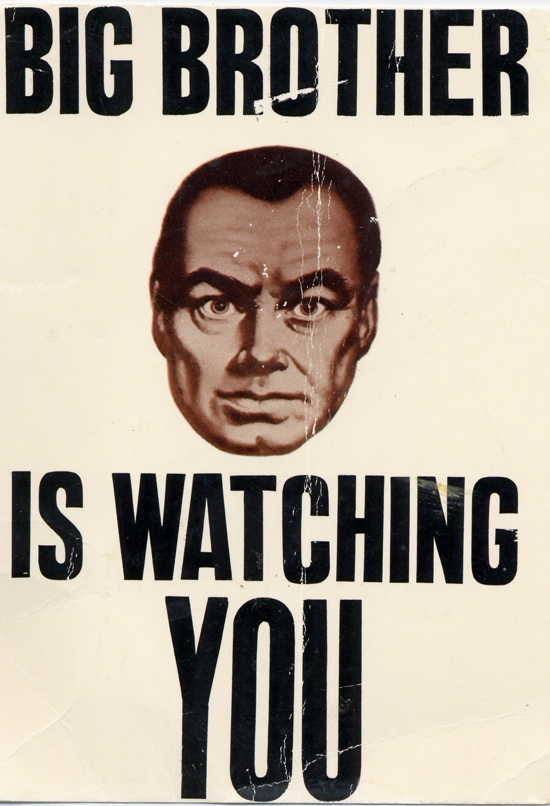
What I have most wanted to do throughout the past ten years is to make political writing into an art. My starting point is always a feeling of partisanship, a sense of injustice.” — “Why I Write,” by George Orwell.
Honorary Partisans George Orwell (1984) and John Beynon Harris (John Wyndham: The Day of the Triffids, The Midwich Cuckoos) made important contributions to SF, as did the following Partisans not known primarily as SF writers: Ayn Rand (Atlas Shrugged, Anthem), Samuel Beckett (Endgame), Pierre Boulle (Planet of the Apes), Hergé (The Shooting Star), Louis L’Amour (The Haunted Mesa), and B.F. Skinner (Walden Two). Al Capp wrote “The Time Capsule,” a genuine SF adventure starring Li’l Abner, which appeared in Satellite (August 1957); and without Partisans Joseph Campbell, Alex Raymond (Flash Gordon), and Buster Crabbe, we’d have no Star Wars. Alfred Bester is an honorary member of the New Gods; Edmond Hamilton is an honorary Hardboiled.
All of the above topics are fascinating. But I will restrict myself, in this limited space, to the following notes on Abstract Expressionism and BIG BAND SWING (Glenn Miller, Jimmy Dorsey, Chick Webb, Tommy Dorsey, Jack Teagarden, Benny Goodman, Gene Krupa, Shep Fields, Artie Shaw, Bob Crosby, Woody Herman, were all born from 1904-13).

Writing under the anti-middlebrow pseudonym “Hektor Rottweiler,” honorary Partisan T.W. Adorno rejected the claim that jazz of this (or any) sort was a musical form whose spontaneity and primitivism expressed liberation. Jazz, he scoffed, combines “the lament of unfreedom” (the music’s pseudo-spontaneous elements, e.g., moments when a a soloist takes center stage, and improvises a solo) with unfreedom’s “oppressed confirmation” (the music’s unchallenged rhythm, the steady pounding of the drum). Like Middlebrow itself, Big Band Swing dialectically transforms contrariness into smoothness; instead of revolutionary energy, Adorno found in the music only the “half-resentful, half-compliant” submission to slavery that (he wrote) characterizes the blues from which it sprung. In its very form, according to Adorno, Big Band Swing reflects a social order (one diagnosed by the Modernists and Hardboileds) in which coercion has been relocated within spontaneity, authority within liberty. (Discuss.)
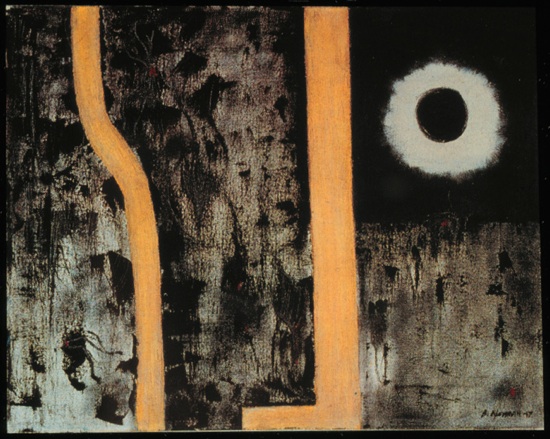
Influenced by the anti-middlebrow art movements Surrealism (e.g., the automatic art of Pollock, De Kooning, Hofmann) and Cubism (e.g., the simple, unified blocks of color of Newman, Still, Rothko), Abstract Expressionism might seem to be a redoubt of anti-middlebrow cultural production during an era in which Middlebrow triumphed in the west. The anti-middlebrow art critic Clement Greenberg, who regarded Abstract Expressionism as highbrow art, argued persuasively that this was the case. However, the impression of intellectual, aesthetic, and perhaps most importantly, political freedom evoked by Pollock’s psychologically intense action paintings, Rothko’s spiritually overwhelming multiforms, and Smith’s witty connect-the-dot sculptures, for example, were easily coopted by CIA-funded propagandists in order to reassure Americans that we — unlike the recently defeated Nazis, and particularly the ever-more powerful Communists — were on the right side of history. The question is: Were those propagandists high-middlebrow? highbrow? Or anti-lowbrow? (Discuss.)
Meet the Partisans.
HONORARY PARTISANS: John Beynon Harris (John Wyndham), Cornell Woolrich, George Orwell, Mark Rothko, maybe T.W. Adorno and Cyril Connolly (all born 1903).
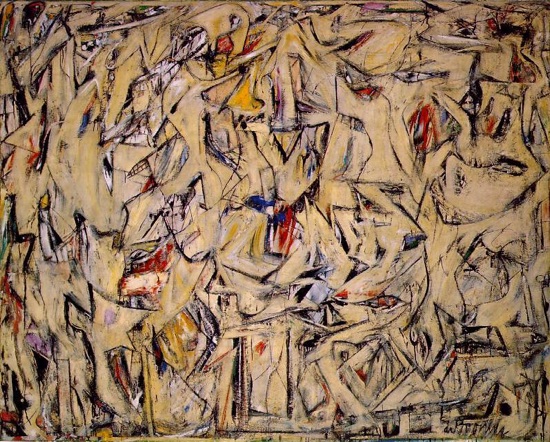
1904: Willem de Kooning (Abstract Expressionist), Glenn Miller (popular swing bandleader and trombonist), Jimmy Dorsey (popular bandleader and swing musician), Max Shachtman (American Marxist theorist), Arshile Gorky (Abstract Expressionist), Clyfford Still (Abstract Expressionist), Count Basie (big band pianist), Cary Grant (movie star), Deng Xiaoping (Communist Chinese leader), John Gielgud (actor), Mississippi Fred McDowell (bluesman), Coleman Hawkins (jazz tenor sax), Ray Bolger (actor), Meyer Schapiro (art historian), B. F. Skinner (behaviorist), Joseph Campbell (middlebrow mythographer), Clifford D. Simak (SF novelist), Theodor Seuss Geisel (Dr. Seuss), Fats Waller (jazz pianist), Peter Arno (New Yorker cartoonist), F.W. Dupee (Partisan Review), Johnny Weissmuller (actor, athlete), George Stevens (director), Ralph Bellamy (actor), Phil Harris (musician), Joan Crawford (actress), Robert Oppenheimer (Physicist, headed the Manhattan Project), Isaac Bashevis Singer (author), Greer Garson (Actress), George Balanchine (choreographer), Ernst Mayr (evolutionary biologist), Pablo Neruda (Chilean poet), Gregory Bateson (anthropologist). Honorary Hardboileds: James T. Farrell, Graham Greene, Peter Lorre, Salvador Dali, Edmond Hamilton, Pretty Boy Floyd (gangster), Edgar G. Ulmer (noir film director), S. J. Perelman (New Yorker humorist), A.J. Liebling (New Yorker journalist), Jacques Tourneur (noir film director).
1905: Lionel Trilling, Lillian Hellman, John O’Hara, Ayn Rand, Greta Garbo, Jean-Paul Sartre, Otto Preminger, Henry Fonda, Eddie Anderson, Chick Webb (big band swing), Bob Wills, Arthur Crudup, Ernie Bushmiller, Howard Hughes, Viktor Frankl, Tommy Dorsey (big band swing), Jack Teagarden (big band swing), Robert Penn Warren, Eddie Condon, Diana Trilling, Agnes de Mille, Kenneth Rexroth, Friz Freleng, Barnett Newman (Abstract Expressionism), Lois Mailou Jones, Anna May Wong, Myrna Loy, Arthur Lake, Clara Bow, Joseph Cotten, Thelma Ritter, Robert Donat, Ray Milland, Christian Dior, Maria von Trapp, Albert Speer, Elias Canetti, Anthony Powell, Eric Frank Russell.

1906: Samuel Beckett, Dwight Macdonald, Hannah Arendt, Emmanuel Levinas, Dmitri Shostakovich (Russian/Soviet composer), David Smith (Abstract Expressionist sculptor), Aristotle Onassis, Billy Wilder, Roberto Rossellini, Harold Rosenberg, Anthony Mann, Clifford Odets, Carol Reed, Ed Gein, Grace Hopper, William Bendix, Janet Gaynor, Bugsy Siegel, Janet Gaynor, John Carradine, Josephine Baker, Estée Lauder, Fredric Brown, Louise Brooks, Wild Bill Davison, Nelson Goodman, Anne Morrow Lindbergh, Eddie Albert, Lou Costello, Robert E. Howard, Lon Chaney, Jr., Satchel Paige, Ozzie Nelson, Victoria Spivey, Jacques Becker, Albert Hofmann, Dietrich Bonhoeffer, Madeleine Carroll, Henny Youngman, Adolf Eichmann, Kurt Godel, T. H. White, John Betjeman, Imam Hassan al Banna, Luchino Visconti, Leonid Brezhnev.
1907: William Phillips, Barbara Stanwyck, Rachel Carson, W.H. Auden, Hergé, Frida Kahlo, Cab Calloway, Katharine Hepburn, John Wayne, James A. Michener, Rosalind Russell, Jessamyn West, Cesar Romero, Buster Crabbe, Robert A. Heinlein, Sunnyland Slim, Milton Caniff, William Shawn, Orville Redenbacher, Gene Autry, William Steig, Burgess Meredith, L. Sprague de Camp, Jimmie Foxx, Charles Alston, Don the Beachcomber, Mircea Eliade, Jean Hippolyte, Baldur von Schirach, Laurence Olivier, René Char, Fay Wray, Maurice Blanchot, Run Run Shaw, Astrid Lindgren, Jacques Tati, Jacques Barzun, Peggy Ashcroft.

1908: Simone de Beauvoir, Philip Rahv, Bette Davis, Richard Wright, John Kenneth Galbraith, Claude Lévi-Strauss, Lyndon B. Johnson, Maurice Merleau-Ponty, Edward R. Murrow, Louis L’Amour, Theodore Roethke, Buddy Ebsen, Lee Krasner (Asbtract Expressionist), Carole Lombard, Lionel Hampton, William Maxwell, Ethel Merman, C. Vann Woodward, Nelson S. Bond, Joseph Mitchell, Fred MacMurray, James Stewart, Abraham Maslow, Joseph McCarthy, Mel Blanc, Tex Avery, Milton Berle, Leon “Chu” Berry, Thurgood Marshall, Arthur Adamov, Anna Magnani, Rex Harrison, David Lean, Edward Teller, Daisy and Violet Hilton, Michael Redgrave, Ian Fleming, Henri Cartier-Bresson, Jack Williamson (prolific SF author).
1909: Simone Weil, Isaiah Berlin, Clement Greenberg, Benny Goodman (big band swing), Malcolm Lowry, James Agee, Lester Young, Nelson Algren, Wallace Stegner, Eudora Welty, Eric Ambler (pioneering thriller author), Herschel Evans, Barry Goldwater, Bukka White, Gene Krupa (big band swing), Ann Sothern, Rollo May, Joseph L. Mankiewicz, Alex Raymond, Dean Rusk, Art Tatum, Edgar Pangborn, Hugh Beaumont, Wallace Stegner, John Fante, Edwin H. Land, Moon Mullican, Mother Maybelle Carter, Burl Ives, Leo Fender, Al Capp (US cartoonist Alfred Gerald Caplin, Li’l Abner), Kay Thompson, Eve Arden, Vivian Vance, Albert R. Broccoli, Eugène Ionesco, Elia Kazan, Errol Flynn, Stanislaw Ulam, Carmen Miranda, James Mason, Jessica Tandy, Colonel Tom Parker, Michael Rennie, Francis Bacon, Victor Borge.
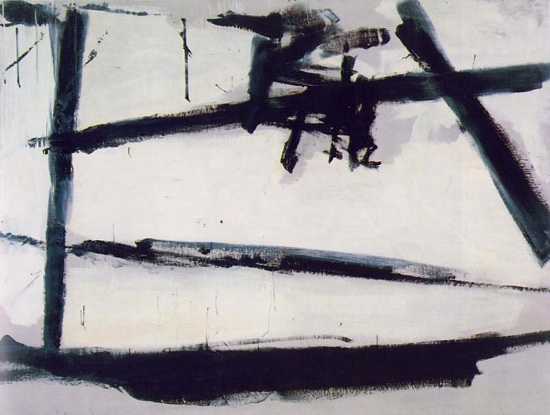
1910: Franz Kline (Abstract Expressionist), Lionel Abel, Paul Bowles, Howlin’ Wolf, Jean Genet, A.J. Ayer, Clyde Barrow and Bonnie Parker, Louis Prima, Shep Fields (big band swing), Wright Morris, Big Joe Turner, Fritz Leiber, Paul Sweezy, Russell Lynes, Dizzy Dean, Joan Bennett, John W. Campbell Jr., Charles Olson, Spade Cooley, Dorothea Tanning, Gloria Stuart, Mae Clarke, Mary Wickes, Scatman Crothers, Artie Shaw (big band swing), T-Bone Walker, E.G. Marshall, William Hanna, John H. Hammond, Akira Kurosawa, Diana Mitford, Eero Saarinen, Django Reinhardt, David Niven, Jacques-Yves Cousteau, Mother Teresa.
1911: Robert Johnson, Tennessee Williams, Paul Goodman, Emil Cioran, Ronald Reagan, Josef Mengele, Flann O’Brien, J.L. Austin, Czeslaw Milosz, Mervyn Peake, Hume Cronyn, Marshall McLuhan, Louise Bourgeois, Buck Clayton, Babe Zaharias, Ginger Rogers, Elizabeth Bishop, Martin Denny, Gypsy Rose Lee, Hugh Marlowe, L. Ron Hubbard, Lucille Ball, Maureen O’Sullivan, Kenneth Patchen, Roy Rogers, John Sturges, Butterfly McQueen, C. L. Moore, Roy Eldridge, Lee Falk, Jack Finney, Jean Harlow, Phil Silvers, Joseph Barbera, Jack Ruby, Hubert H. Humphrey, Vincent Price, Spike Jones, Bernard Herrmann, Mitch Miller, LaVerne Andrews, Jane Wyatt, Romare Bearden, Ruth Hussey, Lee J. Cobb, Kenneth Patchen, Nicholas Ray, Robert Taylor, Otto Oscar Binder (American SF author), William Golding, Nino Rota.

1912: Mary McCarthy, Woody Guthrie, Jackson Pollock (Abstract Expressionist), Michelangelo Antonioni, Northrop Frye, Kim Philby, Jacques Ellul, Milton Friedman, Gene Kelly, Samuel Fuller, John Cheever, Don Siegel, Julia Child, Studs Terkel, Doris Wishman, Charles Addams, Teddy Wilson, Chuck Jones, Lady Bird Johnson, Barbara Tuchman, John Cage, Lightnin’ Hopkins, Pat Nixon, Bayard Rustin, Karl Malden, Archibald Cox, Sam Snead, Ben Hogan, Perry Como, Jay Silverheels, Art Linkletter, Minnie Pearl, Gordon Parks, Richard Brooks, José Ferrer, Eva Braun, Pierre Boulle, Lawrence Durrell, Wernher von Braun, Sonja Henie, Kim Il-sung, A. E. van Vogt, Alan Turing, Pope John Paul I, Franz Jakubowski.
1913: Albert Camus, Walt Kelly, Muddy Waters, Delmore Schwartz, Rosa Parks, William Barrett, Richard Nixon, Anthony Quayle, Max Kaminsky, Philip Guston (Abstract Expressionist), Mary Leakey, Ad Reinhardt (Abstract Expressionist), Paul Ricoeur, Frank Tashlin, Danny Kaye, Jimmy Hoffa, Bob Crosby (big band swing), Jimmy Preston, Lloyd Bridges, Ross Rocklynne, Loretta Young, Jim Backus, William Casey, Richard Helms, Frankie Laine, Oleg Cassini, Tyrone Power, Woody Herman (big band swing), William Reddington Hewlett, David Packard, Dorothy Kilgallen, Red Skelton, W. Mark Felt (Deep Throat), Frances Farmer, John M. Mitchell, Mickey Cohen, Stanley Kramer, Robert Capa, Victor Mature, Robertson Davies, Peter Cushing, Trevor Howard, Vivien Leigh, Benjamin Britten, Hedy Lamarr, Stewart Granger, Lucien Goldmann. Honorary New Gods: Joe Simon, Gerald Ford, Alan Ladd, Burt Lancaster, Cordwainer Smith, Vince Lombardi, Jesse Owens, Alfred Bester, maybe Ralph Ellison.
HONORARY PARTISANS: Daniel J. Boorstin, Howard Fast, Marguerite Duras, Julio Cortazar, Dylan Thomas (all 1914).
ADVENTURE WRITERS: Ben Hecht (Top 200: Erik Dorn); Aldous Huxley (Top 200: Brave New World); Dashiell Hammett (Top 200: The Maltese Falcon); John Dos Passos (Top 200: Three Soldiers); Ernest Hemingway (Top 200: A Farewell to Arms); Erich Kästner (Top 200: Emil and the Detectives); Philip Gordon Wylie (Top 200: Gladiator, When Worlds Collide [with Edwin Balmer]).
READ MORE essays by Joshua Glenn, originally published in: THE BAFFLER | BOSTON GLOBE IDEAS | BRAINIAC | CABINET | FEED | HERMENAUT | HILOBROW | HILOBROW: GENERATIONS | HILOBROW: RADIUM AGE SCIENCE FICTION | HILOBROW: SHOCKING BLOCKING | THE IDLER | IO9 | N+1 | NEW YORK TIMES BOOK REVIEW | SEMIONAUT | SLATE
Joshua Glenn’s books include UNBORED: THE ESSENTIAL FIELD GUIDE TO SERIOUS FUN (with Elizabeth Foy Larsen); and SIGNIFICANT OBJECTS: 100 EXTRAORDINARY STORIES ABOUT ORDINARY THINGS (with Rob Walker).
